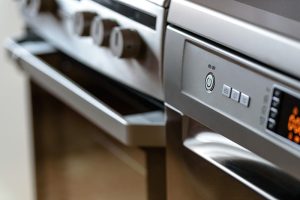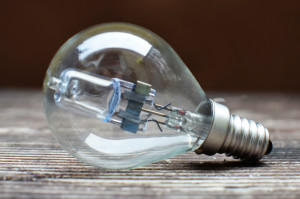Homes in Charlotte can drive up an electricity bill without even trying hard. The fact is that using labor-saving appliances like washers and dryers can take a lot of a home’s electricity budget. Costs for power aren’t cheap in Charlotte, and because of that, homeowners ought to be aware of where their electricity costs are coming from. There are several critical areas within your Charlotte home, where electrical consumption is far higher than you might expect it to be.
 The Usual Suspects
The Usual Suspects
When you discuss power bills, the first place you should start is with heating and cooling. Central air conditioning and heat pumps can consume an average of 15,000 watts from your power supply, which works out to approximately $1.50 spent every hour that these devices remain on. We can, however, manage these costs. In cold temperatures, we can dress warmly indoors, and reduce the thermostat setting to the lowest comfortable temperature. On hot days, we can opt for more relaxed clothing and only use the air conditioning if truly necessary. Both of these appliances become far more energy-efficient if they are serviced regularly by specialists.
 Appliances that Cost You
Appliances that Cost You
While area heating and cooling are the most significant culprits for energy consumption, general appliance usage also falls under the category of devices that are expensive to run. Water heaters are an excellent example of an appliance that sucks up power to provide its services, but this observation can be applied to any heat-producing machine, for example, a radiator. It’s a good idea to limit the usage of these appliances wherever necessary and cut back on energy costs as a result. Another device that usually gets overlooked is the refrigerator. You should remember that the fridge is always on, and that constant consumption of electricity adds up. Lower the power impact by keeping the fridge door closed when possible, and service the vents and coils at the back of the appliance often.
 Some Less Obvious Culprits
Some Less Obvious Culprits
As we noticed before, heat-producing appliances tend to be large consumers of electricity. The same goes for light bulbs. Incandescent bulbs are far less efficient than fluorescent lamps, and they produce a massive amount of heat as well to go with their lighting. This heat comes from the consumption of your electricity. Switching to energy-efficient light bulbs might save you a lot if you use lights often in your home.
Another less obvious energy hog is the desktop computer or monitor. Gaming rigs are notorious consumers of power. However, even the average PC that’s used just for browsing and work might take up a large chunk of your energy costs. Switching to energy-efficient monitors and only using the PC when necessary can go a long way towards cutting costs.
Plan Your Energy Budget
Most houses have a budget that they dedicate towards power and other utilities. In the same way, a household can budget how they consume their power. Taking simple steps can reduce power consumption and the associated costs by quite a large amount. Turning off lights when they’re not in use is the most common example, but it goes even further than that. The responsibility for your power consumption is yours. You should take steps to make sure you don’t have to pay through the nose for a few creature comforts.
